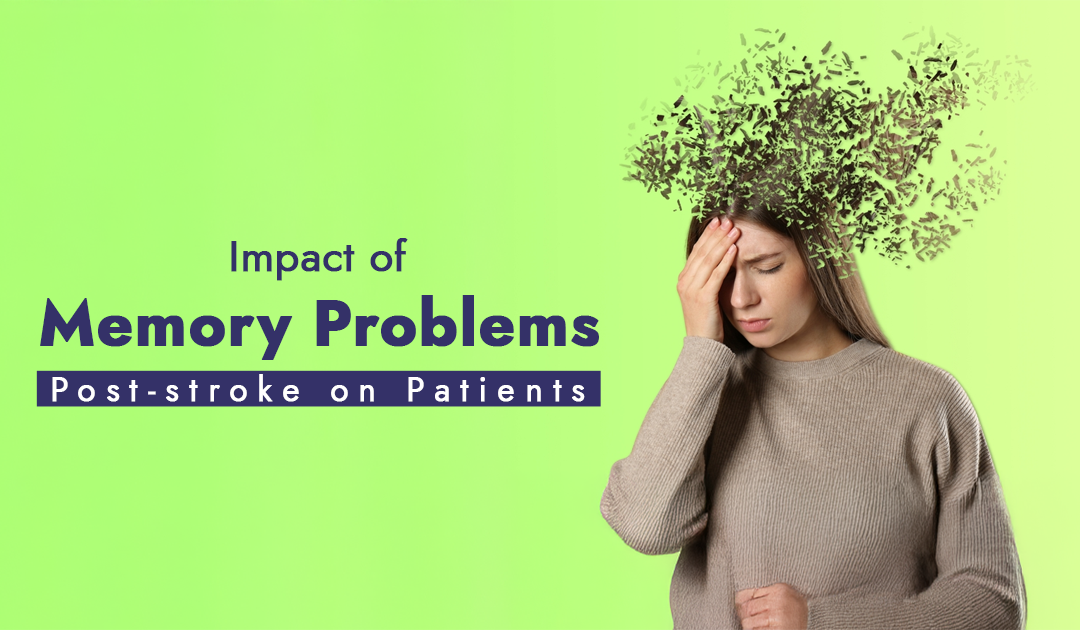The most common consequences that can occur after a stroke with the potential to damage the overall quality of your life are cognitive impairment and memory loss. This would mean a disruption or disturbance in the way your brain functions, comprehends, organizes, and stores information. The ability to solve problems is also affected in individuals who have suffered right brain stroke. This impairment may make it difficult for the affected individual to maintain a job, function independently, have interpersonal and social relationships, and even drive a vehicle.
The common cognitive issues may consist of:
- Difficulties in maintaining focus or attention
- Lapses in memory
- Disorientation
- Challenges in processing information effectively,
- Struggles with responding to inquiries and organizing thoughts
- Engaging in discussions
- Recalling significant details, comprehending one’s surroundings, reasoning, or making decisions.
Why Do I Have Cognitive Problems After a Stroke?
Issues with memory and thinking are extremely common post-stroke. Your brain is the central part dealing with comprehension, organization and storage of information. This aspect of the brain is known as cognition. Different parts of the brain work in different ways to provide for cognitive functions such as thinking and memory. Therefore, when one of those parts is damaged by a stroke, it may lead to cognitive problems.
How are Cognitive Problems Diagnosed After a Stroke?
If you’re in a hospital, dealing with assessment is much easier as compared to not. However, some issues are easily identifiable, whereas others may not be so noticeable even after you get discharged and return home. Several healthcare professionals recommend that affected individuals get assessed regularly after their discharge to make sure there is no cognitive impairment.
To find the issue, cognitive assessments are performed. This may be done by a doctor, an occupational therapist, and in some cases, a psychologist as well. The procedure includes them asking you questions, which may make you feel like you’re taking an exam even when you’re not. The results help determine the findings that can be further explained to you.
What Are the Types of Cognitive Problems After a Stroke?
There is a spectrum of cognitive issues that affected individuals may experience. It is important to explore each aspect, along with its diagnostic criteria and treatment options. They include:
- Concentration difficulties
- Memory impairments
- Challenges in planning and problem-solving (executive function)
- Inability to notice stimuli on one side (spatial neglect)
- Difficulties in movement or body control (apraxia)
- Issues with movement regulation and spatial navigation (visual perception)
- Confusion and lack of awareness (anosognosia)
- Difficulty in recognizing objects or people (agnosia)
Experiencing cognitive difficulties does not necessarily point toward the presence of dementia. Many individuals have concerns regarding this, yet it is important to note that dementia usually progresses over time, whereas cognitive challenges after a stroke often show improvement. Read more about vascular dementia.
How to Treat Cognitive Issues After a Stroke?
Cognitive problems poststroke can heavily impact an individual’s regular functioning, affecting memory, attention, problem-solving skills, and overall cognitive function. However, there are several treatment plans available to assist in managing these problems and improve the overall quality of life.
One of the primary approaches is cognitive rehabilitation therapy. This means working with a trained therapist who helps the patients regain cognitive skills through structured exercises and activities. The therapy is personalized to the individual’s specific needs and may focus on improving memory, attention, or executive functions. Techniques such as memory aids, strategy training, and problem-solving exercises are often used.
Another important part of treatment is occupational therapy. Occupational therapists help individuals adapt to their cognitive limitations by teaching them strategies to complete daily tasks more effectively. This may involve the use of assistive devices, curating routines, and modifying environments to help tasks get easier.
In addition to that, speech and language therapy can be beneficial, especially if communication is affected. Speech therapists can work on language skills, comprehension, and social communication, which can help enhance overall cognitive functioning.
Medication may also be considered in some cases. While there are no specific drugs for cognitive impairment post-stroke, certain medications can help manage symptoms or underlying conditions, such as depression or anxiety, which can increase cognitive issues.
Finally, support groups and counseling can provide emotional support for both patients and their families. Connecting with others experiencing similar challenges can be incredibly helpful for coping and recovery.
All in all, dealing with cognitive problems can be difficult. With the right support and healthcare assistance, you can easily minimize the problems and return to normalcy. For more queries and personalized healthcare assistance, book an appointment today.

